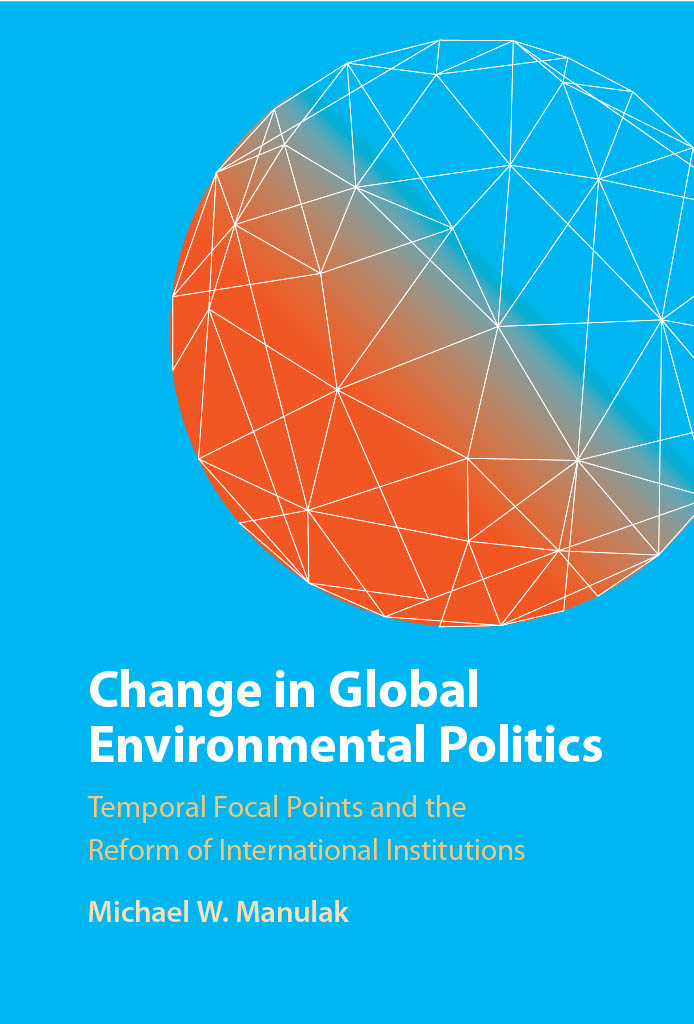Change in Global Environmental Politics: Temporal Focal Points and the Reform of International Institutions
Available in Hardcover, May 2022
***Winner of the International Studies Association’s Chadwick F. Alger Prize for the best book on international organizations and multilateralism for 2022 & Honourable Mention for the Harold and Margaret Sprout Award for the best book in the environmental studies field***
As wildfires rage, pollution thickens, and species disappear, the world confronts environmental crisis with a set of global institutions in urgent need of reform. Yet, these institutions have proved frustratingly resistant to change.
Introducing the concept of Temporal Focal Points, Michael W. Manulak shows how change can—and does—occur in world politics. By re-envisioning the role of timing and temporality in social relations, his analysis presents a new paradigm for understanding transformative phases in international cooperation.
We may now be entering such a phase, he argues, and global actors must be ready to realize the opportunities presented. Charting the often colorful and intensely political history of change in global environmental politics, this book sheds new light on the actors and institutions that shape humanity’s response to planetary decline.

As we stare down at the triple planetary crisis of climate change, biodiversity loss and pollution and waste, the stakes have never been higher for multilateral action. Michael W. Manulak’s engaging book provides a comprehensive overview of five decades of global environmental politics and affords us important insights into reinvigorating multilateralism to address challenges of a dynamic world.
Inger Andersen, United Nations Under-Secretary-General and Executive Director of the UN Environment Programme.
Scholarship on international institutions has paid insufficient attention to temporality: explaining when successful initiatives occur. Michael W. Manulak fills this important gap in the literature with his account of temporal focal points: salient moments in time around which negotiations can coalesce. Change in Global Environmental Politics: Temporal Focal Points and the Reform of International Institutions, which focuses in detail on environmental agreements, makes an important contribution to our understanding of international institutional change.
Robert O. Keohane, Princeton University (emeritus)
A stimulating and thoughtful contribution to our understanding of how great international decisions get taken. Professor Manulak brings theory and sound historical analysis together to show how gradual change can culminate in decisive and surprising shifts. His work has valuable lessons for policy-makers dealing with climate change today.
Margaret MacMillan, D.Phil
Emeritus Professor of International History, University of Oxford
In this original and fascinating work, Michael W. Manulak expands our understanding of the dynamics and evolution of global environmental governance. Drawing on a set of compelling historical case studies, he shows how high-profile multilateral events, in and of themselves, can drive institutional breakthroughs, by focusing the minds of policymakers and reinforcing convergent expectations about the possibility–and desirability–of new forms of international cooperation.
Stewart M. Patrick
James H. Binger Senior Fellow in Global Governance and Director of the International Institutions and Global Governance Program, Council on Foreign Relations
One reply on “Now Out in Paperback!”
Looking forward to the book